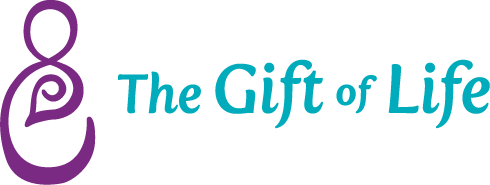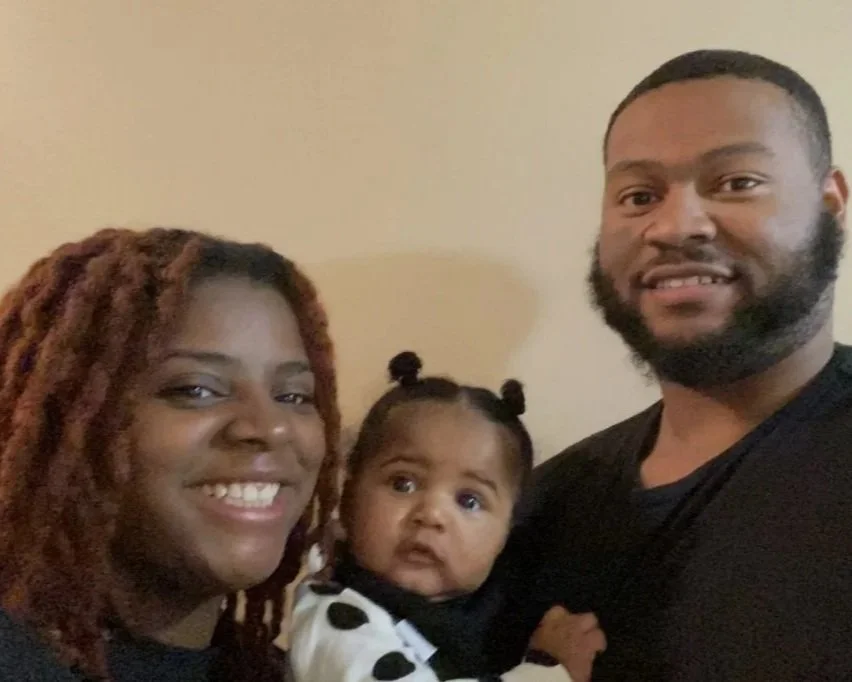Breastfeeding can offer many benefits
The physical contact of breastfeeding increases mom and baby bonding
Breastmilk is a protective factor for baby against illnesses and Sudden Infant Death Syndrome (SIDS)
Breastmilk is easy to digest and offers baby important nutrients
Breastfeeding burns calories, which may help moms lose weight gained during pregnancy
Infants who are breastfed have reduced risk of: Asthma and severe lower respiratory disease; Obesity, Type 1 diabetes; and Ear infections
Common Questions About BreastfeedingQ: Why should I breastfeed?
A: Breastfeeding is normal and healthy for infants and moms. Breastmilk has hormones and disease-fighting cells called antibodies that help protect infants from germs and illness.
Q: How long should I breastfeed?
A: The American Academy of Pediatrics recommends breastfeeding for at least 12 months, and for as long as both the mother and baby would like. Most infants should drink only breastmilk for the first six months.
Q: Does my baby need cereal or water?
A: Until your baby is 6 months old, the American Academy of Pediatrics recommends feeding your baby breastmilk only. Giving your baby cereal may cause your baby to not want as much breastmilk. This will decrease your milk supply. You can slowly introduce other foods starting around 6 months of age.
Q: Is it okay for my baby to use a pacifier?
A: If you want to try it, it is best to wait until breastfeeding is established to introduce a pacifier. This allows your baby time to learn how to latch well on the breast and get enough milk. Once your baby is breastfeeding well, you should use the pacifier when putting your infant to bed to reduce the risk of sudden infant death syndrome (SIDS).
Q: Is it safe to smoke, drink, or use drugs?
A: If you smoke, the best thing you can do for yourself and your baby is to quit as soon as possible. If you can’t quit, it is still better to breastfeed because it may protect your baby from respiratory problems and SIDS. Be sure to smoke away from your baby, and change your clothes to keep your baby away from the chemicals smoking leaves behind. Ask a doctor or nurse for help quitting smoking!
You should avoid alcohol in large amounts. An occasional drink is fine, but the American Academy of Pediatrics recommends waiting two hours or more before nursing. You also can pump milk before you drink to feed your baby later.
It is not safe for you to use an illegal drug. Drugs such as cocaine, heroin, marijuana, and PCP can harm your baby. Some reported side effects in babies include seizures, vomiting, poor feeding, and tremors.
Q: Can I take medicines if I am breastfeeding?
A: Most likely. Almost all medicines pass into your milk in small amounts. Some have no effect on the baby and can be used while breastfeeding. Always talk to your doctor or pharmacist about medicines you are using and ask before you start using new medicines. This includes prescription and over-the-counter drugs, vitamins, and dietary or herbal supplements. For some women, stopping a medicine can be more dangerous than the effects it will have on the breastfed baby.
Q: Do I still need birth control if I am breastfeeding?
A: Yes. Breastfeeding is not a sure way to prevent pregnancy, even though it can delay the return of normal ovulation and menstrual cycles. Talk to your doctor or nurse about birth control choices that are okay to use while breastfeeding.
Q: Does my breastfed baby need vaccines?
A: Yes. Vaccines are very important to your baby’s health. Breastfeeding may also help your baby respond better to certain immunizations, giving him or her more protection. Follow the schedule your doctor gives you. If you miss any vaccines, check with the doctor about getting your baby back on track as soon as possible.
For more information about breastfeeding, call Gift of Life Foundation and ask to speak to one of our certified lactation specialists at (334) 272-1820.
*Source: Office of Women’s Health www.womenshealth.gov
A Breastfeeding Story: Persistence Helped Tsianna Achieve Her Breastfeeding Goals
Tsianna Goodgame learned about the benefits of breastfeeding through the encouragement and support she received from her Nurse Home Visitor Tina Ledbetter and the Gift of Life Foundation’s Nurse-Family Partnership in Russell County. Those home visits helped her decide early in her pregnancy that she wanted to breastfeed. Baby Olivia was born September 5, 2022 at 38 weeks weighing 6 lbs. 9 oz. Nurse Tina’s first visit with Tsianna, dad, Tinez, and baby Olivia was just four days after she arrived. Breastfeeding was going OK and Tinez was very supportive. She was doing an amazing job! At Nurse Tina’s next visit a week later, Tsianna continued to exclusively breastfeed. She almost gave up a few times because it felt like she was feeding around the clock and she was tired. Her nipples were sore, and she cried at times from the fatigue, but she never gave up as she wanted the best for Olivia. Tinez took leave from work after Olivia’s delivery for a few weeks to help care for his daughter and her mother. Due to her desire to be a strong mom, Tsianna felt like she needed to be awake if the baby was awake, but Nurse Tina encouraged her to take Tinez up on his offers to do more. His involvement was important to Olivia, too. So, she agreed to rest some and let Olivia’s dad take care of her. Tsianna is the first person in her and her boyfriend’s family to attempt breastfeeding. She said their opinions and lack of understanding about the benefits of breastfeeding made the decision challenging initially, but she is glad she persisted. Though her breastfeeding journey has been hard at times, it’s also been rewarding. Oliva is a beautiful, healthy baby with amazing parents who gave her a great start by breastfeeding.
COMMUNITY RESOURCES
Baptist Health Lactation Center
To speak with a lactation consultant or to learn more about the lactation center and classes, please call: Baptist Medical Center East: (334) 244-8360 or Baptist Medical Center South: (334) 286-2829. Website: www.baptistfirst.org/services/womens-and-childrens-services
Jackson Hospital - Breastfeeding Classes
These classes include basic breastfeeding information, techniques, and prevention of common problems. Class size is limited. Participants are encouraged to register by phone or email by the 5th month of pregnancy for the best selection of available class dates. Phone: 334-293-8497 Email: liz.owen@jackson.org. Visit www.jackson.org
WIC Nutritionist/HSI Health Services 2101 Chestnut Street, Montgomery, AL 36106 | Phone: (334) 834-5811
WIC @ Montgomery County AL Health Dept. 3060 Mobile Highway. Montgomery, AL 36108 | Phone: (334) 293-6400
Village Maternal Instincts Maternal wellness services for birth, breastfeeding, and beyond. Visit www.facebook.com/VillageMaternalServices or email Adillah Smith at villagedoulactation@gmail.com for classes and sessions
The Wellness Coalition’s Baby Cafes Baby cafes are places where moms and families can receive education and support for breastfeeding and lactation needs. Lactation counselors are on hand to help answer questions and address concerns. The service is completely FREE, and no appointment or insurance is necessary. Locations are: Family Guidance Center, 2358 Fairlane Drive, Montgomery, AL 36116. Tuesdays and Thursdays - 5:30 - 7:30 pm and Wednesdays and Fridays - 12- 2:00 pm
MGM Hispanic SDA Church, 2515 Woodley Rd, Montgomery, AL 36111. Every second and fourth Saturday of the month - 1-3 pm. For more info, contact The Wellness Coalition, call (334) 293-6502 to learn more.
DOWNLOAD BREASTFEEDING RESOURCES
MYTH VS FACT: Breastfeeding & Safe Infant Sleep
Meet Our Breastfeeding Bosses
Gift of Life recently launched its new Breastfeeding Bosses series to give our moms a platform to share their personal experiences with breastfeeding. Their stories are real and detail the rewards and challenges that come with breastfeeding. The stories are told in hopes that moms making the decision to breastfeed can increase their knowledge, find support and community and know they are not alone.
Gift of Life mom and Breastfeeding Boss LaRissa Duke describes why the decision to breastfeeding was the right choice for her family. She gives practical advice to moms who are contemplating the decision to breastfeed and lessons she learned along her journey.
Gift of Life mom and Breastfeeding Boss LaTifha Warren describes how breastfeeding for her was as much about connecting with her womanhood , establishing a new family tradition, and honoring her ancestors, as it was about the health benefits for her three children, all of whom she breastfeed. She explains how she experiences fuel her passion to educate and encourage black women to breastfeed.
Gift of Life mom Nickifia is a Breastfeeding Boss because she's on a mission to tell other young moms how beneficial breastfeeding is. She's taken all the information she received about breastfeeding during pregnancy and after her sweet baby Keniju was born to encourage other moms who may be hesitant about breastfeeding.
Gift of Life mom Kameren Williams is a Breastfeeding Boss! She says the key to her success was getting the facts about breastfeeding while she was pregnant and the incredible support she received from her mom, step-mom, boyfriend, and friends who understood how important it was to her to breastfeed and who made sure she had the physical and emotional support she needed to do so.
Gift of Life Nurse Home Visitor and Breastfeeding Boss Katie Knight explains how breastfeeding creates a special bond between mother and baby and why she treasured her time breastfeeding
Gift of Life mom Bailey Rollan is a breastfeeding boss! She is using her voice to share with moms the joys and challenges of breastfeeding in a new vlog series aimed at capturing real stories by real moms who are breastfeeding.
August is Breastfeeding Month and we're spotlighting Gift of Life Breastfeeding Boss Tiara Martin who explains the benefits she received from breastfeeding. She's an outstanding mom but what makes her a boss is how she's taken everything she's learned about breastfeeding with her Gift of Life coach Kathy Lightsey and all the knowledge she's gained through her breastfeeding experience to help other moms.


